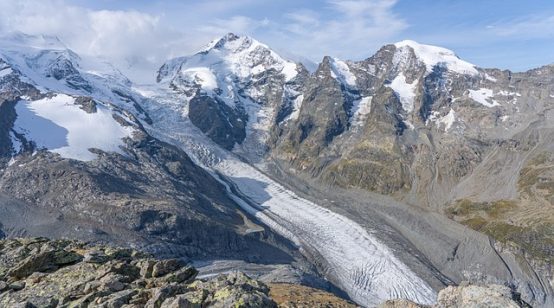
The German city of Freiburg over more than 30 years has cut emissions by investing in renewable energy, imposing strict building standards, constructing a low-emissions neighbourhood and by building bike lanes and tram lines.
Cars have also been banned from the centre of the Black Forest city.
Rian van Staden of the Global 100-per-cent Renewable Energy Platform praised the city’s commitment to its circular economy.
By focussing on energy efficiency, Freiburg has created a system of power generation that is highly sustainable, using waste-to-power generation in a carbon-neutral way.
The gas being produced from a landfill site has been turned into energy for residents and compostable bio-waste is due to be used instead.
Heat generated by an incinerator is being used to cure wooden pallets at an industrial park.
“This is a very specific type of magic,” said van Staden. “It’s only possible with substantive analysis of current emissions and energy flows. But if you can make the investment, you see significant payback.”
The city of 230,000 has reported that emissions have fallen by more than 37 per cent per head since 1992.
Germany is poised on September 20 to adopt an extensive range of measures to cut emissions in its bid to become carbon-neutral by 2050.
“The big challenges that are discussed at the international level, including climate change, they ultimately have to be addressed at the city level,” said Freiburg’s mayor Martin Horn.
“It is up to us to decide whether we spend money on a new four-lane road or on a new tram line. We can do a lot at the local level — and that is what we have done in Freiburg for many years,” the 34-year-old told the Financial Times.
In 1996 Freiburg set climate targets that have been stepped up until now it is committed to lowering carbon emissions by 60 per cent by 2030.
The affluent city’s municipal council unanimously agreed its latest climate package in March, including a planned emissions-neutral neighbourhood for up to 15,000 inhabitants. A carbon-neutral football ground stadium is being developed alongside a tougher clampdown on cars.
During the 1970s protesters from Freiburg successfully blocked plans for a nuclear power plant and the legacy continues.
“People in Freiburg demonstrate not because they think we do too much for the climate but too little,” said the mayor.
The city has invested heavily to enable alternatives to the car.
The share of city trips made by bicycle has risen from 15 per cent in 1982 to the current 34 per cent. Meanwhile, car journeys account for 21 per cent of the total, down from nearly 40 per cent.
Freiburg. Picture credit: NeedPix





